For any homeowner or renter, a toolbox is essential. There’s always something that will need some work – from putting up a picture, to fixing a tap, or even mending a roof.
Knowing what to put in that toolbox might be a challenge if you are new DIY-er, so here’s some handy advice. The right tools are the first step to becoming a handyman or woman after all!
Toolbox essentials include:
1. Screwdriver Set
You’ll be surprised how much use these can get – from removing child-proof battery covers to building IKEA flat-pack… and even opening tins of paint!
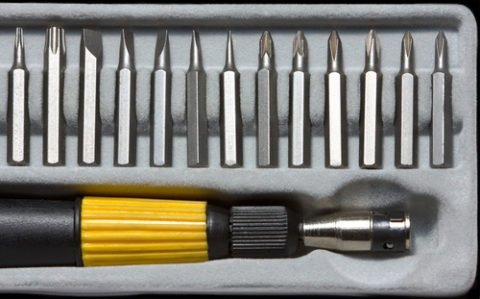
Buy both Flat-head and Phillips-head screwdrivers, and a range of sizes. A multi-bit screwdriver with interchangeable heads is the best space saving option.
2. Hammer
For knocking in nails to demolition in a renovation project, a hammer is another must-have. A decent option for general DIY will have:
• A head weight of between 16-20 oz.
• A smooth face. Some have a ‘milled face’ but this can mar surfaces.
• A rubber, plastic or vinyl handle. These are better for shock absorption and grip.
• A straight rip claw for removing nails etc.
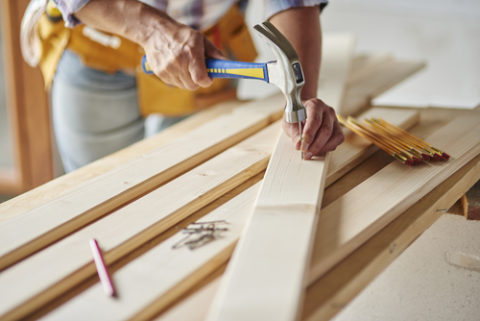
3. Pliers
These can double up as a spanners or wire cutters – so another useful one for the toolbox. Needle-nose pliers are good for electrical projects as they are well suited for small places and even small wires. Choose groove-joint ones for plumbing projects.
4. Tape measure
I’ve always followed the advice ‘Measure twice, cut once’. It really makes sense and having this patience and discipline with a DIY project will save you time in the long run.
So, a toolbox must-have is a tape measure. An excellent choice is a 25-foot model with a blade lock.
5. Spanner
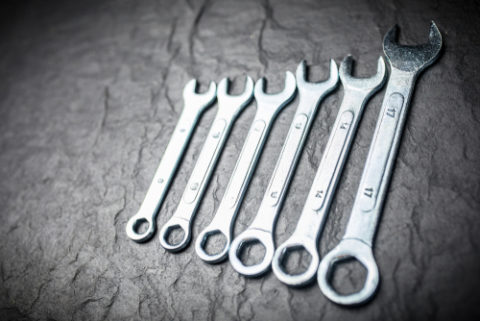
Another set you’ll need, are a set of spanners. These are essential for tightening and loosening nuts and bolts, assembling furniture and routine maintenance on bikes and cars.
There are several options on the market – from adjustable, combination or socket sets. A ratchet and sockets are the most versatile and easiest for getting into small spaces. You’ll need a variety of sizes to cover different uses.
6. Stanley Knife
Opening boxes, cutting wires, slicing flooring… a decent quality blade is another useful item to have in your toolbox. Spare blades are kept in the handle! Neat and tidy too.
7. Duct Tape
The final toolbox essential we recommend is Duct tape.
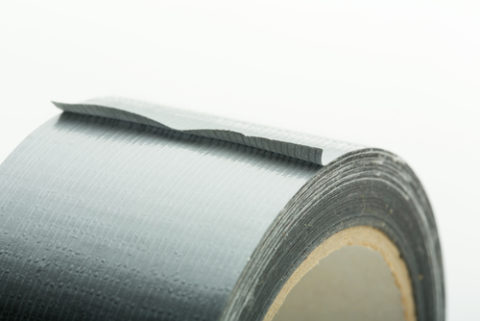
This has many purposes – holding up dust sheets during a project, placing over objects so you can make a mark for drilling, sealing up boxes and binding together items.
Torches, spirit levels, electric drills and hacksaws are also common tools that you might need early on in your DIY days. However, you might want to get these when the project dictates, so you can find the one that works best for your requirements.
Before you buy, think about quality
These tools are quite literally going to take a beating. Avoid the cheapest tools, as the saying ‘you get what you pay for’ does apply here. It is worth investing in quality tools, with comfortable grips and resistant materials.
It is also likely that you’ll need some more specialist equipment at times. At this point you might want to make the decision between buying and renting. If you are going to use it more than once a year, than you’ll probably best to buy.
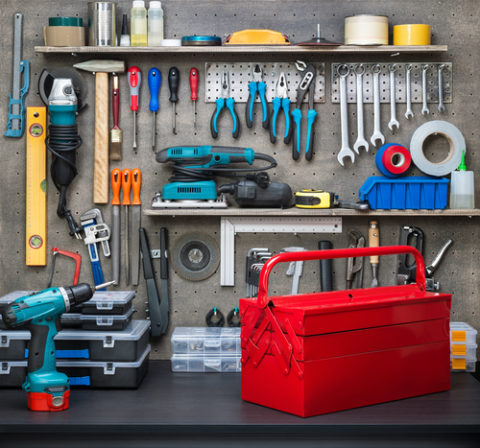
Of course, acquiring tools can quickly take over your garage or shed, so be sure to keep things organised in your toolbox and have a dedicated place for your stuff.
If you’re running out of room, then try a storage unit – a clean, dry and secure place to keep your equipment.
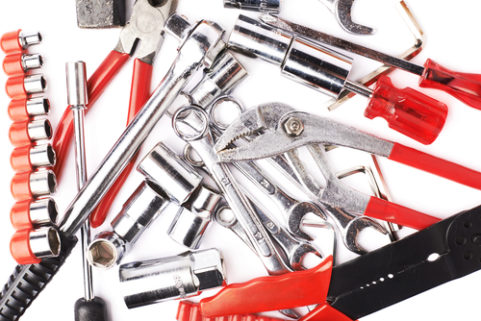
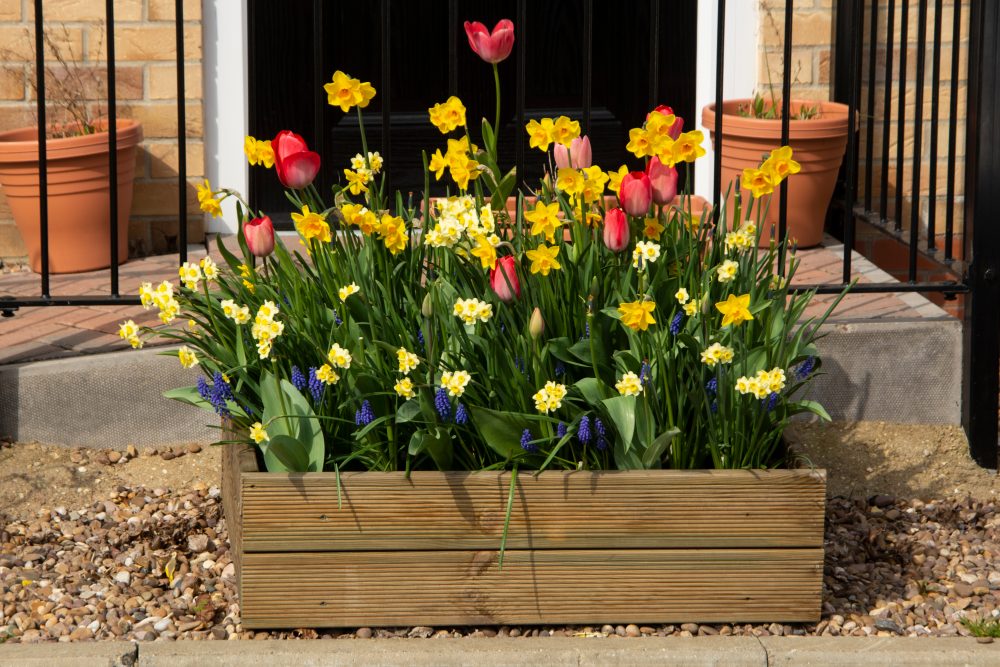
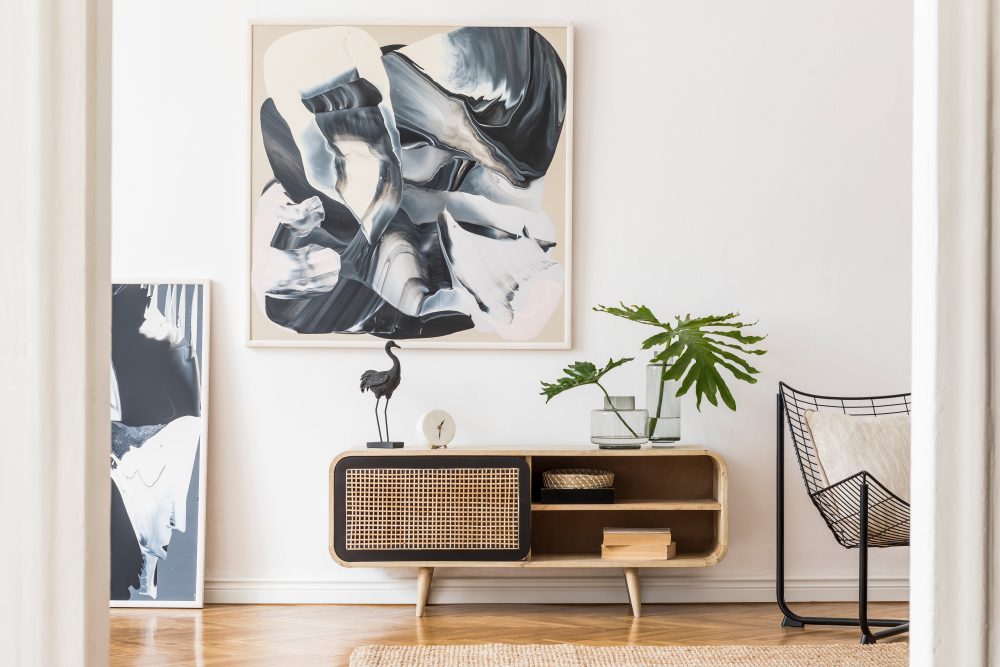

Leave a Reply